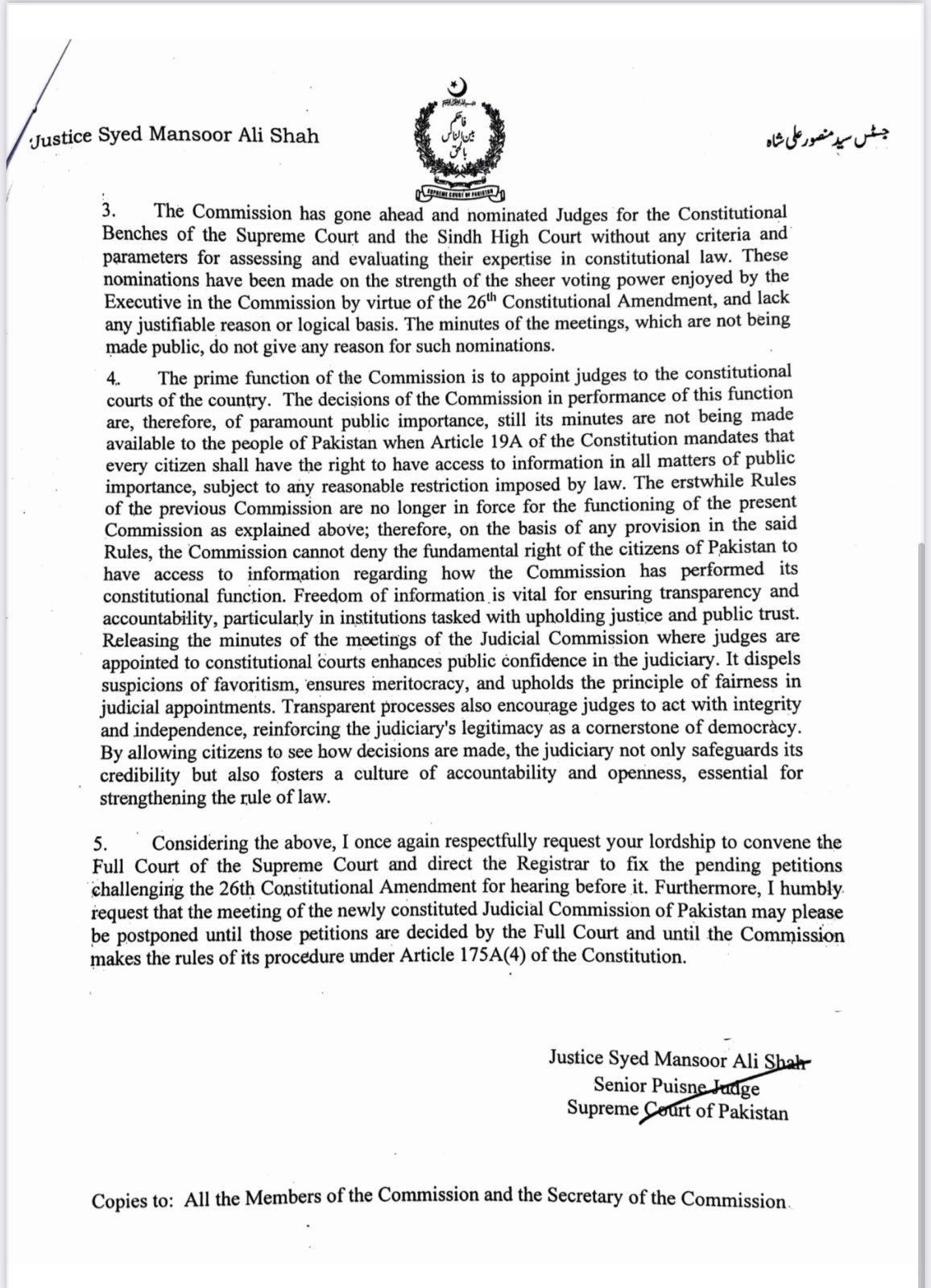Justice Mansoor urges CJP to convene full court over pleas against 26th amendment
In his letter, Justice Mansoor Ali Shah said that the petitions, which question the amendment’s constitutionality, should be heard by a full court to ensure a thorough and conclusive ruling.
He noted that the amendment altered the composition of the Judicial Commission, and any decision on the petitions could potentially invalidate actions taken by the commission under the contested amendment.
Justice Shah warned that if the petitions succeed, it could render the decisions of the Judicial Commission null and void, which may cause embarrassment to the institution and its members. He stressed the need for a timely decision to resolve the legal status of the commission.
The letter also referenced a prior decision made by Justice Shah and Justice Munib Akhtar on October 31 to schedule a hearing for the petitions, but the registrar has not yet listed them before a full court.
Justice Shah pointed out the urgency of addressing these petitions and urged the Chief Justice to direct the Registrar to schedule them for hearing before a full court bench.
Furthermore, Justice Shah clarified that while Article 19-A of the Constitution restricts regular Supreme Court benches from hearing constitutional petitions, it does not prevent a full court from doing so.
He proposed that the meetings of the Judicial Commission be delayed until the petitions challenging the 26th Amendment are resolved.
 Earlier in October, the Constitutional 26th Act, 2024, also known as the Constitutional Package, had been passed by both houses of Pakistan’s Parliament.
Earlier in October, the Constitutional 26th Act, 2024, also known as the Constitutional Package, had been passed by both houses of Pakistan’s Parliament.
The amendment was approved by the Senate with a two-thirds majority, followed by a similar majority in the National Assembly early on Monday morning.
The legislation introduces significant changes, including the removal of the Supreme Court’s suo motu powers, a three-year term limit for the Chief Justice of Pakistan (CJP), and new powers for the Prime Minister to appoint the next CJP from among the three most senior judges of the Supreme Court.


1733394865-0/Express-Tribune-(5)1733394865-0.jpg)